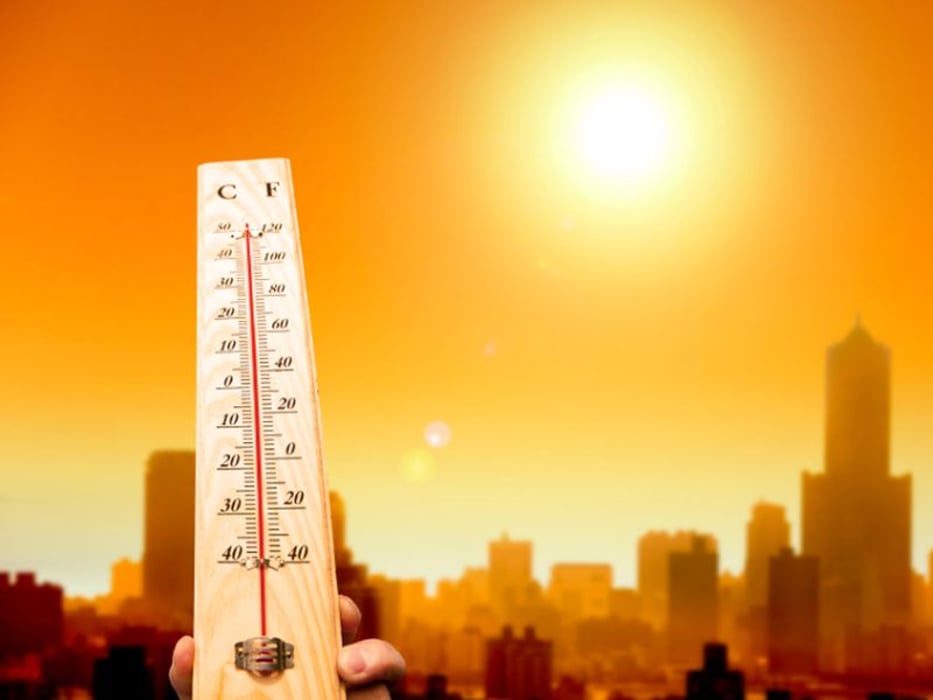Extreme Heat Blankets Much of America: Tips to Stay Safe

FRIDAY, June 17, 2022 (HealthDay News) -- If you're among the millions of Americans sweltering in extreme heat this week, the U.S. Centers for Disease Control and Prevention offers some solid advice on keeping safe.
More than 60 million people from Southern California to West Virginia and as far south as Florida are now under an excessive heat warning or heat advisory, the New York Times reported. Residents in several states on Wednesday saw temperatures rise well into the 90s, and even the 100s, and hot temperatures were likely to persist across large sections of the country for several days.
The soaring temperatures are part of a hot weather pattern moving over the lower 48 states before the July Fourth weekend, according to the National Weather Service.
Heat waves are becoming more frequent, hotter and longer lasting, scientists say. The federal National Climate Assessment noted in 2018 that the frequency of heat waves had jumped from an average of two per year in the 1960s to six per year by the 2010s. The heat wave season in the United States has also stretched to 45 days longer than it was in the 1960s, according to the report.
What to do in the face of unrelenting high temperatures? The CDC has some suggestions:
- Stay in an air-conditioned place as much as possible. If your home does not have air conditioning, go to an air-conditioned shopping mall or public library, or call your local health department about any heat-relief shelters in your area.
- Electric fans may provide some relief, but they won't prevent heat-related illness when the temperature is in the high 90s. Taking a cool shower or bath or going to an air-conditioned place is a much better way to cool off. Try to limit use of your stove and oven.
- Limit outdoor activity to when it is coolest, like the morning and evening. Rest often in shady areas. Cut down on outdoor exercise.
- Apply a sunscreen of SPF 15 or higher that says "broad spectrum" or "UVA/UVA protection" on the label and reapply regularly while outdoors. Wear a wide-brimmed hat and sunglasses.
- Drink more fluids, regardless of how active you are. Don't wait until you're thirsty to drink. Heavy sweating removes salt and minerals from the body. A sports drink can replace the salt and minerals you lose in sweat.
- If you are on a low-salt diet, have diabetes, high blood pressure or other chronic conditions, talk with your doctor before drinking a sports beverage or taking salt tablets.
- Never leave infants, children or pets in a parked car, even if the windows are cracked open.
- Monitor your local news for extreme heat alerts, safety tips and to learn about any cooling shelters in your area.
- Learn the signs and symptoms of heat-related illnesses and how to treat them. Monitor others, especially those at high risk, such as infants and young children; people 65 and older; people who are overweight; people who are physically ill or taking certain medications, such as for depression, insomnia or poor circulation, and people who overexert during work or exercise.
- Visit at-risk adults at least twice a day and closely watch them for signs of heat exhaustion or heat stroke. Infants and young children require much more frequent checks.
- If you are 65 or older, have a friend or relative call to check on you twice a day during a heat wave.
More information
For more on heat wave safety, see the American Red Cross.
SOURCES: U.S. Centers for Disease Control and Prevention, news release; New York Times
Related Posts
El insomnio podría aumentar las probabilidades de sufrir un accidente cerebrovascular
JUEVES, 8 de junio de 2023 (HealthDay News) -- Tras muchas noches sin dormir,...
Un nuevo rival de Wegovy se muestra promisorio en ensayos clínicos
MARTES, 27 de junio de 2023 (HealthDay News) -- Un medicamento experimental...
¿El síndrome del túnel carpiano podría fomentar el riesgo de insuficiencia cardiaca?
JUEVES, 13 de julio de 2023 (HealthDay News) -- Se podría considerar como una...
